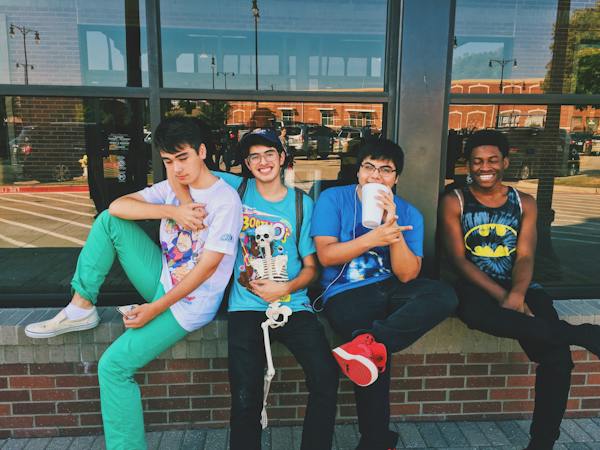The Troubled Teen Industry In Rural Areas

Importance of The Troubled Teen Industry
The troubled teen industry has gained attention and raised concerns over the years for its controversial practices and lack of regulations. While some advocates argue that there is a need for robust government oversight and intervention, others question the effectiveness of government programs in addressing the unique challenges faced by troubled teenagers. This article aims to examine the existence, efficacy, and limitations of government programs in the troubled youth industry.
Background Information on the Troubled Teen Industry
The troubled youth industry encompasses a range of privately-run residential programs, wilderness therapy camps, and therapeutic boarding schools. These facilities are often marketed to parents seeking help for their struggling adolescents dealing with behavioral, emotional, or substance abuse issues. However, the lack of industry-wide regulations has raised concerns over potential exploitation and mistreatment of vulnerable youths.
Lack of Government Oversight
One of the main criticisms of the troubled teen is the absence of stringent government oversight. Unlike other industries such as healthcare or education, there is no comprehensive federal regulatory framework specifically targeting troubled teen programs. This regulatory gap facilitates questionable practices and leaves room for abuse and negligence.
State Licensing and Accreditation
While there is no federal regulatory body overseeing the troubled teen, some states have implemented licensing requirements for these programs. However, the effectiveness of state licensing varies widely, with some states having lax standards and limited oversight. Accreditation by national organizations, such as the Joint Commission or the Council on Accreditation, can provide a level of quality assurance for troubled teen programs.
Government Intervention Programs
Despite the lack of comprehensive regulation, government intervention programs do exist to address the needs of troubled teens. These programs can include juvenile justice systems, substance abuse treatment centers, counseling services in schools, and social services agencies. These interventions, although not specific to the troubled teen industry, offer support and assistance to troubled teenagers.
Educational and Therapeutic Services
Within the public school system, government-funded programs exist to support troubled teens. These programs typically provide educational and therapeutic services, including counseling, special education resources, and alternative schools tailored to the needs of at-risk youth. However, the availability and quality of these services may vary depending on the jurisdiction and funding limitations.
Parental Rights and Advocacy
Government agencies also play a role in protecting parental rights and providing resources to support families dealing with troubled teens. For instance, child protective services can intervene in cases of abuse or neglect, ensuring the safety and well-being of the youth. Additionally, advocacy groups and nonprofits may receive government funding to raise awareness, provide resources, and lobby for reforms within the troubled teen industry.
Limitations of Government Programs
While the existence of government programs aims to address the needs of troubled teens, they often face several limitations. Insufficient funding, limited resources, and ongoing systemic challenges can hinder the effectiveness of these programs. Moreover, government interventions might not always adequately address the specific needs or circumstances of troubled teens, highlighting the need for alternative approaches.
Calls for Regulatory Reform
Various organizations, lawmakers, and advocacy groups have pushed for regulatory reform within the troubled teen. These calls have urged lawmakers to develop comprehensive federal regulations, ensuring the safety, well-being, and rights of troubled teens in residential programs. Increased oversight and transparency are seen as vital to protecting vulnerable individuals from potential harm.
International Perspectives and Best Practices
Examining international perspectives can shed light on successful government programs addressing the needs of troubled teens. Countries such as the Netherlands and Finland have implemented comprehensive frameworks focusing on prevention, early intervention, and community-based support instead of punitive measures. Drawing from international best practices could inform potential improvements within the troubled teen industry.
Does the Rural Population have Access to the Programs of Troubled youth?
Rural areas are often overlooked when it comes to addressing the needs of troubled youth. While many programs and support systems are available in urban and suburban areas, rural populations often struggle to access these resources. This section discusses the challenges faced by rural populations in accessing programs for troubled youth as well as potential solutions to bridge this gap.
One of the main challenges faced by rural populations is the lack of availability and proximity of programs for troubled youth. In many rural areas, there is a scarcity of mental health facilities, counseling services, and treatment centers. This makes it difficult for troubled youth to receive the help they need in a timely manner. Another obstacle is the limited transportation options in rural areas. Many troubled youth may not have access to reliable transportation to attend programs in neighboring towns or cities. This lack of transportation can significantly limit their ability to access services and can further isolate them from much-needed support.
In addition, the stigma surrounding mental health issues is often more prevalent in rural communities. Due to the close-knit nature of these communities, troubled youth may fear being judged or labeled by their peers and community members. This fear can discourage them from seeking help or participating in programs that could potentially benefit them. Furthermore, the lack of funding is a significant barrier in providing programs for troubled youth in rural areas. Limited resources and funding make it challenging for organizations and service providers to establish and maintain services in these areas. This lack of financial support hampers the development of necessary programs and restricts their availability.
However, there are potential solutions that can help alleviate the challenges faced by rural populations when it comes to accessing programs for troubled youth. Firstly, implementing telehealth services can bridge the geographical gap. Through virtual counseling sessions and remote group programs, troubled youth in rural areas would have equal access to mental health professionals and support networks.
Additionally, partnerships between urban and rural communities can be established to bring programs and resources to rural areas. Urban centers can share their expertise, resources, and funding with rural organizations to help develop and sustain programs for troubled youth. This collaboration can help overcome the challenges faced by rural populations and ensure that troubled youth receive the support they need, regardless of their location.
Moreover, raising awareness and reducing stigma around mental health in rural communities is crucial. This can be achieved through educational programs, town hall meetings, and community initiatives aimed at normalizing discussions around mental health issues. By fostering an environment that encourages seeking help and support, troubled youth in rural areas are more likely to access available programs.
Rural populations often face significant barriers in accessing programs for troubled youth. The lack of availability, transportation options, stigma, and limited funding all contribute to this issue. However, through the implementation of telehealth services, partnerships, and community awareness initiatives, these challenges can be mitigated. It is essential that rural areas receive equitable support to ensure that troubled youth have access to the programs they need for their well-being and future success.
Free Support Programs for Troubled Youth in America
The well-being and future of troubled youth are of utmost importance for society. In order to address the challenges faced by these individuals, various organizations and programs across America provide crucial support services, often free of charge. This section examines several avenues where troubled youth can be sent for free to receive guidance and care, focusing on government-run initiatives, nonprofits, and community-based organizations.
Government-Run Programs
Many states in America offer free support programs for troubled youth that are administered by the government. For example, the Juvenile Justice Division under the Department of Justice operates free rehabilitation centers and vocational training facilities, providing a structured environment where troubled youth can transform their lives positively.
Nonprofit Organizations
Numerous nonprofit organizations play a vital role in assisting troubled youth in America. Institutions like Boys & Girls Clubs of America provide a safe and supportive environment for youngsters, offering mentorship programs, career development opportunities, and access to social activities—all at no cost to participants.
Community-Based Organizations
Communities often provide free resources tailored to the needs of troubled youth. Local churches, community centers, and youth clubs offer counseling services, after-school programs, and recreational activities, fostering personal growth, interpersonal skills, and a sense of belonging.
Public Schools
Public schools are an essential support system for troubled youth. They provide counseling services, special education programs, and collaboration with mental health professionals. School-based programs like peer mentoring and anti-bullying campaigns promote a positive school environment, encouraging students to seek help without financial barriers.
Crisis Hotlines and Textlines
In America, multiple crisis helplines, such as the National Suicide Prevention Lifeline and Crisis Text Line, offer free, confidential support to troubled youth. These 24/7 helplines and textlines connect individuals to trained professionals who provide empathy, guidance, and appropriate referrals to local resources.

Residential Treatment Centers
For troubled youth requiring intensive therapeutic intervention, residential treatment centers are available free of charge in certain cases. These centers offer comprehensive mental health care, substance abuse treatment, and educational support, aiming to empower youth to overcome their challenges and build a brighter future.
Youth Programs within Human Services Departments
State and local Human Services Departments often establish youth programs aimed at assisting troubled individuals. These programs may include life skills training, job readiness programs, and access to resources for stable housing, healthcare, and nutrition. Their goal is to equip troubled youth with the tools needed for improved self-sufficiency and personal growth.
Vocational Training Centers
Vocational training centers that focus on academic, technical, or vocational skills development can be particularly beneficial for troubled youth seeking self-improvement. These centers, funded by federal grants, governmental bodies, or philanthropic organizations, equip young individuals with marketable skills that enhance their employability without imposing financial burdens.
College Scholarships and Grants
Numerous scholarships and grants are available to financially disadvantaged youth. Organizations such as the Jack Kent Cooke Foundation and the Gates Millennium Scholars Program provide funding for troubled youth to pursue higher education, opening doors to new opportunities and promoting upward mobility.
Local Philanthropic Initiatives
Lastly, donations and generosity from local philanthropists play a crucial role in supporting troubled youth. Community-based funds, private foundations, and individual donors often establish grants and scholarships that assist troubled youth in overcoming adversity, ensuring access to opportunities that were previously unattainable.
In America, troubled youth have access to several free support programs and initiatives thanks to the collaborative efforts of government organizations, nonprofit groups, and the community. It is crucial to continue investing in these resources to provide troubled youth with the tools, resources, and guidance necessary to overcome their challenges and create a brighter future. By collectively supporting these initiatives, society can help ensure that no financially disadvantaged youth is left behind.
Conclusion on Troubled Teen Industry
While government programs do exist to support troubled teen industry, the troubled teen lacks comprehensive federal oversight. The existing interventions face limitations and may not provide adequate solutions for the unique challenges faced by troubled teens. Calls for regulatory reform and the exploration of international best practices can guide the development of effective government programs aimed at protecting and supporting vulnerable youth. It is imperative that the troubled youth industry receives proper attention and necessary reforms to ensure the well-being and future success of troubled adolescents.

2 thoughts on “Are There Government Programs For The Troubled Teen Industry?”